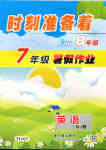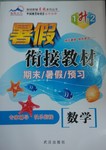
It would be interesting to discover how many young people go to university without any clear idea of what they are going to do afterwards. If one considers the enormous variety of courses offered, it is not hard to see how difficult it is to select the course most suited to his interests and abilities. If a student goes to acquire a broader perspective of life, to enlarge his ideas and to learn to think for himself, he will undoubtedly benefit, since school often has too restricting an atmosphere, with its timetables and disciplines, to allow him much time for independent assessment of the work he is asked to do. Most students would, I believe, profit by a year or so’s exploration of different academic studies, especially those “all-rounders” with no particular bent. They should have longer time to decide in what subject they want to take their degree, so that in later life they do not look back and say, “I should like to have been an archaeologist. If I hadn’t taken a degree in Modern Languages, I shouldn’t have ended up as an interpreter, but it’s too late now. I couldn’t go back and begin all over again, even if I had the chance.”
There is, of course, another side to the question of how to make the best use of one’s time at university. This is the case of the student who excels in a particular branch of learning, is a first-rate mathematician, scientist, linguist and what you have. He is immediately accepted by the university of his choice, and spends his three or four years becoming a specialist, emerging with a first-class Honors Degree and very little knowledge of what the rest of the world is all about. It therefore becomes more and more important that, if students are not to waste their opportunities and, incidentally, the taxpayers’ money, there will have to be much more detailed information about courses, more advice from Career Masters and Course Tutors if we are not to bring up, on one hand, a band of specialists ignorant of anything outside their own subject, and on the other hand, an ever-increasing number of graduates qualified in subjects for which there is little or no demand in the working world.
50. According to the passage, university students should avoid .
A. acquiring a broad perspective of life
B. allowing themselves the independence of thinking
C. becoming specialists ignorant of what the rest of the world is
D. wasting their opportunities and the taxpayers’ money
51. Some students look back and say: “…but it’s too late now” because .
A. they have no time to make another choice
B. they don’t have the chance to go back and restart
C. they decide not to waste taxpayers’ money any more
D. they could afford no more time to take their degree in another subject
52. At the end of the passage, the word “we” can best be replaced by .
A. people in the working world
B. university graduates
C. career Masters and Course Tutors
D. university people
 时刻准备着暑假作业原子能出版社系列答案
时刻准备着暑假作业原子能出版社系列答案 暑假衔接教材期末暑假预习武汉出版社系列答案
暑假衔接教材期末暑假预习武汉出版社系列答案 假期作业暑假成长乐园新疆青少年出版社系列答案
假期作业暑假成长乐园新疆青少年出版社系列答案科目:高中英语 来源:活题巧解巧练·高二英语·下 题型:014
I'm really upset. I ________ be so much trouble in learning how to drive.
[ ]
A.didn't expect it would
B.don't expect it will
C.don't expect there will
D.didn't expect there would
查看答案和解析>>
科目:高中英语 来源: 题型:阅读理解
I had my first job at the age of thirteen, when a friend of my mother’s who owned a book shop 36 me for six hours a week to help her in the shop. I was very 37 to earn my own pocket money and my parents 38 interfered with how I spent it, even when I was spending it 39 . They believed that by earning money, spending it, and learning from the 40 , I would become more mature and 41 about how to handle work, relationships with others, and money.
Like many 42 parents, my parents also let me and my brothers do things over which they 43 a great deal. When I was sixteen, for example, after I finished high school and before I entered university, I wanted to spend the summer months traveling around 44 . My mother was against the idea of my traveling alone at such a young age, but my father felt that it would be a great 45 for me. In the end, my father won the 46 on the condition that I limited my traveling to France, my mother’s home, where I had many uncles, aunts and cousins 47 through the country who could 48 shelter and help if I needed them.
Three years later, my younger brother decided to 49 a year off after his first year in university and travel through the United States and the Caribbean. Again my mother was very worried and not 50 to see my brother leave school, but my father encouraged him and my brother had a(n) 51 year working his way on trains and ships to 52 passage to different ports and cities, and discovering many fascinating places and people.
These kinds of experiences are probably rare for children in many countries but in the US they are fairly 53 . Most parents start 54 their children at a young age to do small things by themselves. By the time they have finished high school, many American kids have already had part-time jobs, traveled around the US or other countries on their own, have 55 the university they plan to attend and maybe even decided on their future career, and so on.
36. A. taught B. allowed C. treated D. hired
37. A. anxious B. content C. proud D. hopeful
38. A. never B. ever C. always D. even
39. A. quickly B. foolishly C. seriously D. honestly
40. A. work B. mistakes C. others D. books
41. A. strict B. reasonable C. polite D. responsible
42. A. American B. Japanese C. Chinese D. British
43. A. helped B. supported C. shared D. worried
44. A. Asia B. Africa C. Europe D. Oceania
45. A. journey B. experience C. chance D. possibility
46. A. argument B. game C. discussion D. plan
47. A. send out B. give out C. carry out D. spread out
48. A. promise B. afford C. provide D. serve
49. A. leave B. make C. take D. prepare
50. A. angry B. eager C. sorry D. sad
51. A. unusual B. hard C. strange D. busy
52. A. accept B. earn C. find D. search
53. A. welcome B. fit C. necessary D. common
54. A. bringing B. forcing C. pushing D. protecting
55. A. selected B. admired C. afforded D. left
查看答案和解析>>
科目:高中英语 来源:云南省昆明市2010届高三下学期教学质量检测 题型:阅读理解
E
Could we "terraform" Mars —that is, change its frozen, thin-aired surface into something more friendly and Earthlike? Should we? The first question has a clear answer: Yes, we probably could.Spacecraft, including the ones now exploring Mars, have found evidence that it was warm in its youth, with rivers flowing into vast seas.And right here on Earth, we've learned how to warm a planet: just add greenhouse gases to its atmosphere.Much of the CO2 that once warmed Mars is probably still there, in frozen dirt and polar ice caps, and so is the water.
Most of the work in terraforming, says NASA scientist Chris Mackay, would be done by life itself. "You don't build Mars," Mackay says."You just warm it up and throw some seeds." Powerful greenhouse gases could be produced from elements in dirt and air on Mars and blown into the atmosphere; by warming the planet, they would release the frozen CO2, which would quicken the warming and increase atmospheric pressure to the point where liquid water could flow.Meanwhile, says botanist James Graham of the University of Wisconsin, human settlers could seed the red rock with a succession (系列) of ecosystems ?first bacteria and lichens (地衣), which survive in Antarctica, later mosses (苔藓), and after one thousand years or so, redwoods.Getting breathable oxygen levels out of those forests, though, could take thousands of years.
However, Mars is in no immediate danger.Some space scientists recently recommended going to the moon or an asteroid (小行星) first, and pointed out the space agency lacks the funds to go anywhere.It didn't estimate the cost of gardening a dead planet.
72.What is the most essential to make Mars fit for living?
A.Turn ice into flowing water. B.Clean the dirty atmosphere.
C.Make the atmosphere more suitable. D.Go to the moon or an asteroid first.
73.What does the author think of the idea ofterraforming Mars?
A.We could do it. B.We couldn't do it.
C.We should do it. D.We shouldn't do it.
74.In the botanist's opinion, man needs to __________.
A.enable Mars to clean its atmosphere
B.build a greenhouse on Mars
C.send some people to settle on Mars
D.cultivate ecosystems from lower to higher life form
75.What is the best title for the passage?
A.Making Mars the New Earth. B.A Good Way to Change the Universe
C.Humans' Great Power. D.Terrible Science and Technology.
查看答案和解析>>
科目:高中英语 来源:2012届安徽省芜湖一中高三第六次模拟考试英语试卷(带解析) 题型:阅读理解
Global emissions(排放)of carbon dioxide from fossil fuel burning jumped by the largest amount on record in 2010. Emissions rose 5.9 percent in 2010, according to an analysis released on Sunday by the Global Carbon Project.
Scientists said the increase was almost certainly the largest absolute jump in any year since the Industrial Revolution. The increase solidified a trend of ever-rising emissions that will make it difficult, if not impossible, to stop severe climate change in coming decades.
The burning of coal represented more than half of the growth in emissions, the analysis found. In the United States, emissions dropped by a remarkable 7 percent in the year of 2009, but rose by over 4 percent in 2010, the new analysis shows.
“Each year, emissions go up, and there’s another year of negotiations, another year of indecision,” said Glen P. Peters, a researcher at the Center for International Climate and Environmental Research. “There’s no evidence that this path we’ve been following in the last 10 years is going to change.”
Scientists say the rapid growth of emissions is warming the Earth and putting human welfare at long-term risk. But their increasingly urgent pleas that society find a way to limit emissions have met sharp political resistance in many countries because doing so would involve higher energy costs.
The new figures show a continuation of a trend in which developing countries have surpassed (超过) the wealthy countries in their overall greenhouse emissions. In 2010, the burning of fossil fuels and the production of cement (水泥) sent more than nine billion tons of carbon into the atmosphere, the new analysis found, with 57 percent of that coming from developing countries.
On the surface, the figures of recent years suggest that wealthy countries have made headway in stabilizing their emissions. But Dr. Peters pointed out that, in a sense, the rich countries have simply exported some of them.
The fast rise in developing countries has been caused to a large extent by the growth of energy-intensive manufacturing industries that make goods that rich countries import. “All that has changed is the location in which the emissions are being produced,” Dr. Peters said.
Many countries, as part of their response to the economic crisis, invested billions in programs designed to make their energy systems greener. While it is possible, the new numbers suggest they have had little effect so far.
【小题1】Many governments in the world resist limiting emissions because .
| A.it is not the best way to solve such problems |
| B.they don’t realize the risks of carbon emissions |
| C.it would probably harm human welfare in the long run |
| D.they are unwilling to accept higher energy costs |
| A.the rapid growth of emissions contributes to potential risks for humans |
| B.rich countries actually take more responsibility for the growth of emissions |
| C.human beings will follow the same path of negotiations in the next 10 years |
| D.some countries negotiate together yearly whether to reduce the amounts of emissions |
| A.Emissions in the United States dropped by about 7 percent in 2010. |
| B.Developing countries will produce less emissions with economic development. |
| C.There is a long way to go for many countries to limit the fast growth of emissions. |
| D.Over 50 percent of the growth in emissions resulted from the burning of fossil fuels. |
| A.an analysis released by the Global Carbon Project |
| B.the record jump in carbon dioxide emissions |
| C.the possible climate change in future decades |
| D.the main harm of greenhouse gases |
查看答案和解析>>
科目:高中英语 来源:2013届河南省南阳市一中高三第一次周考英语试卷(带解析) 题型:阅读理解
Going Zero Waste means more than just managing the rubbish we create.It means reducing it too.While it might seem like a difficult thing to do, it's well worth it.And what better time to start than Christmas?
We need to copy the way Nature wastes nothing.Many things are created by human society that we know will soon become useless and be thrown out.How many plastic bottles or even PCs end up in the rubbish bin? Instead,we should design products that can be more easily repaired,reused and recycled.
Kamikatsu, a Japanese village,has already gone Zero Waste.The 2,000 villagers compost their leftovers,and recycle everything else.There are 34 different boxes at the re-cycling centre! Residents grumble about the inconvenience,but they also see the benefits.
People who live Zero Waste lives are careful about what they do.They never take more than they need.Reusing plastic bags at supermarkets is a great way to reduce waste.And those who plan before they shop avoid having to throw food out later.Also,it’s best not to go food shopping when you’re hungry:You’ll be sure to buy too much!
Let’s think about how to enjoy a Zero Waste Christmas.By sending recyclable cards,we can help our friends and family reduce waste.And what better way to enjoy the spirit of Christmas than with a real tree that can be replanted in the spring?
Going Zero Waste requires us to think more about what happens before and after we act.It takes ambition,and it's not always easy.But just think how good it would be,both for ourselves and for the environment, if we never had to waste anything.
【小题1】When is this passage probably written?
| A.After a Christmas. | B.Before Zero Waste starts. |
| C.Before a Christmas. | D.When Zero Waste is very popular. |
| A.To stop using plastic bottles or even PCs. |
| B.To create more things that can be repaired quickly. |
| C.To avoid sending cards on Christmas. |
| D.To copy the way Nature wastes nothing. |
| A.taking no more than we need |
| B.reusing plastic bags |
| C.not going food shopping when we’re hungry |
| D.not making a plan before we shop |
| A.To enjoy a clean Christmas. |
| B.To complain about the pollution. |
| C.To educate people to behave well. |
| D.To call on people to attend Zero Waste. |
查看答案和解析>>
湖北省互联网违法和不良信息举报平台 | 网上有害信息举报专区 | 电信诈骗举报专区 | 涉历史虚无主义有害信息举报专区 | 涉企侵权举报专区
违法和不良信息举报电话:027-86699610 举报邮箱:58377363@163.com